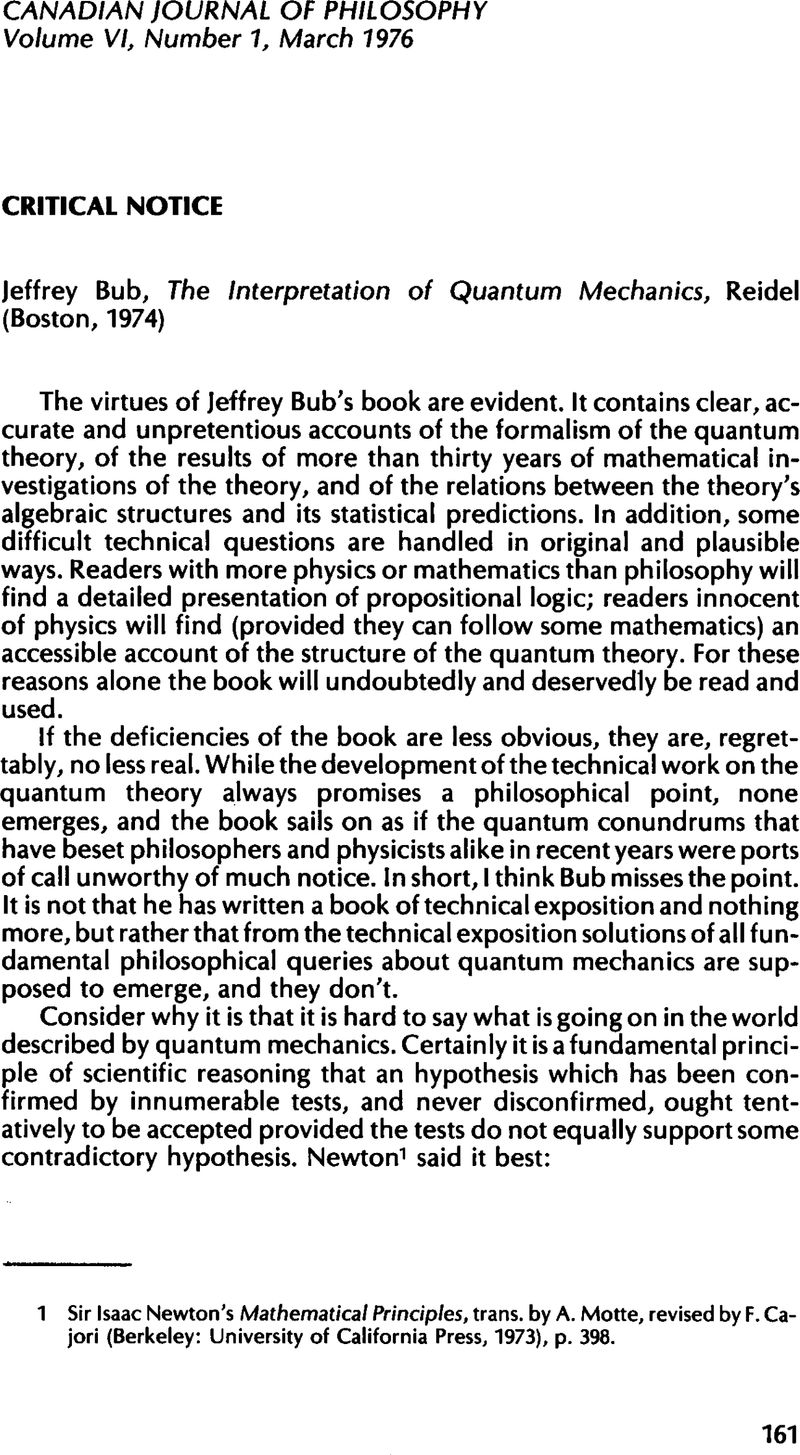Published online by Cambridge University Press: 01 January 2020

1 SirNewton's, Isaac Mathematical Principles, trans. by Motte, A. revised by Cajori, F. (Berkeley: University of California Press, 1973), p. 398.Google Scholar
* Arthur Fine has recently claimed that there is not and could never be experimental evidence for this principle (“On the Completeness of Quantum Theory,” Synthese 29 (1974), 257–289)CrossRefGoogle Scholar. I argue he is mistaken in “The Sum Rule is Well-confirmed” (forthcoming).
2 A theory which agrees with all of the position predictions of quantum theory for a limited by typical class of forces, and which contains the Schrodinger equation, interpreted very differently from the significance given it in quantum theory, is discussed by Nelson, Edward in his Dynamical Theories of Brownian Motion (Princeton: Princeton University Press, 1967).Google Scholar The possibilities and issues raised by this stoachastic interpretation of the wave equation seem to have been unjustly ignored in philosophical discussions of quantum theory.
3 “Probability and the Interpretation of Quantum Mechanics,” British Journal for the Philosophy of Science, 24 (1973).Google Scholar
4 Cf., Bell, “On the Problem of Hidden Variables in Quantum Mechanics,” Reviews of Modern Physics, 38 (1966);CrossRefGoogle Scholar van Fraassen, “Semantic Analysis of Quantum Theory” in Contemporary Research in the Foundations and Philosophy of Quantum Theory, ed. Hooker, C. (Boston: Reidel, 1973).Google Scholar The same idea is used by Stanley Gudder to construct a class of hidden variable theories related, he claims, to the Cf. Bohm-Bub theory. “On Hidden Variable Theories,” Journal of Mathematical Physics, 11 (1970).Google Scholar Despite his suggestion, van Fraassen advocates denying I.
5 See his “Is Logic Empirical” in Cohen, R. ed. Boston Studies in Philosophy of Science (Boston: Reidel, 1971).Google Scholar